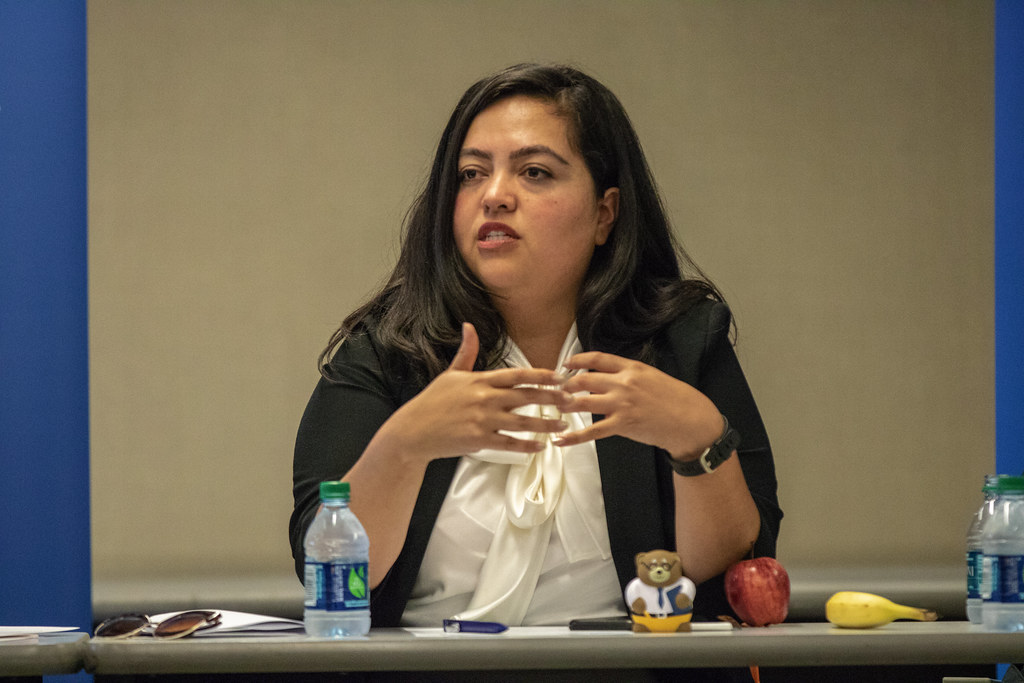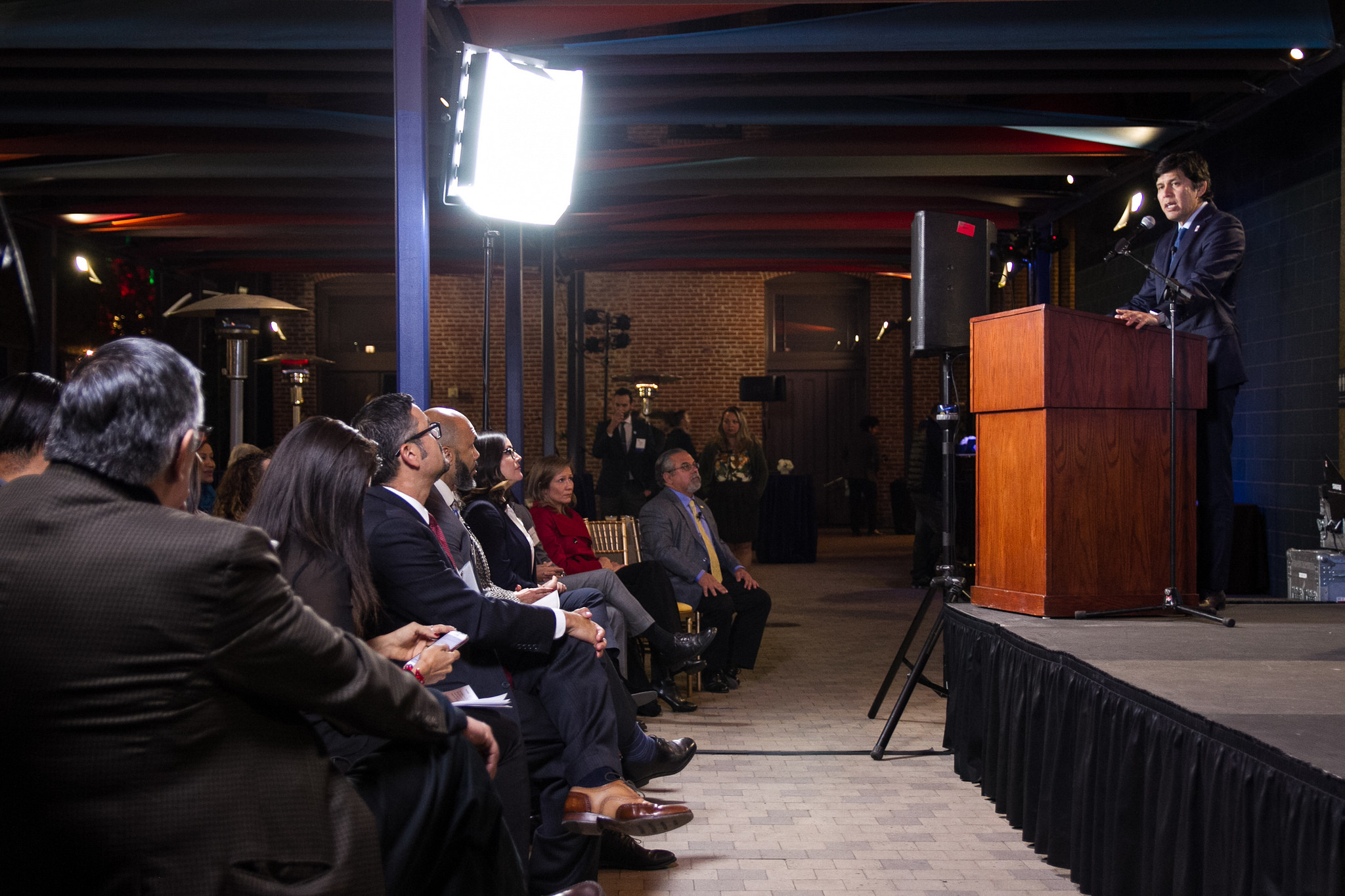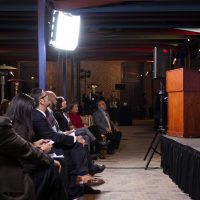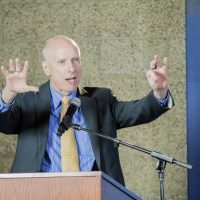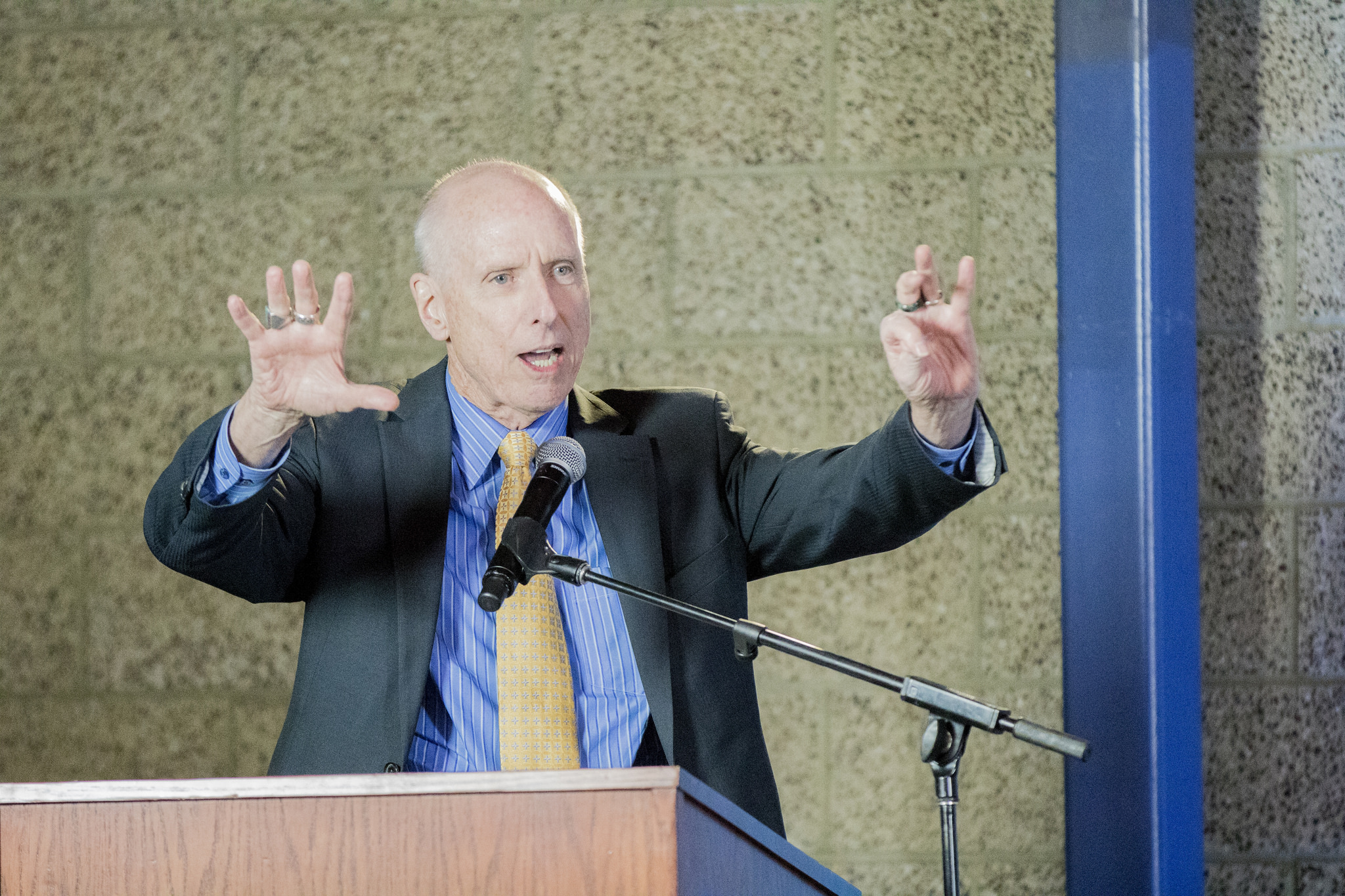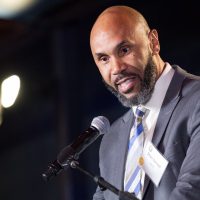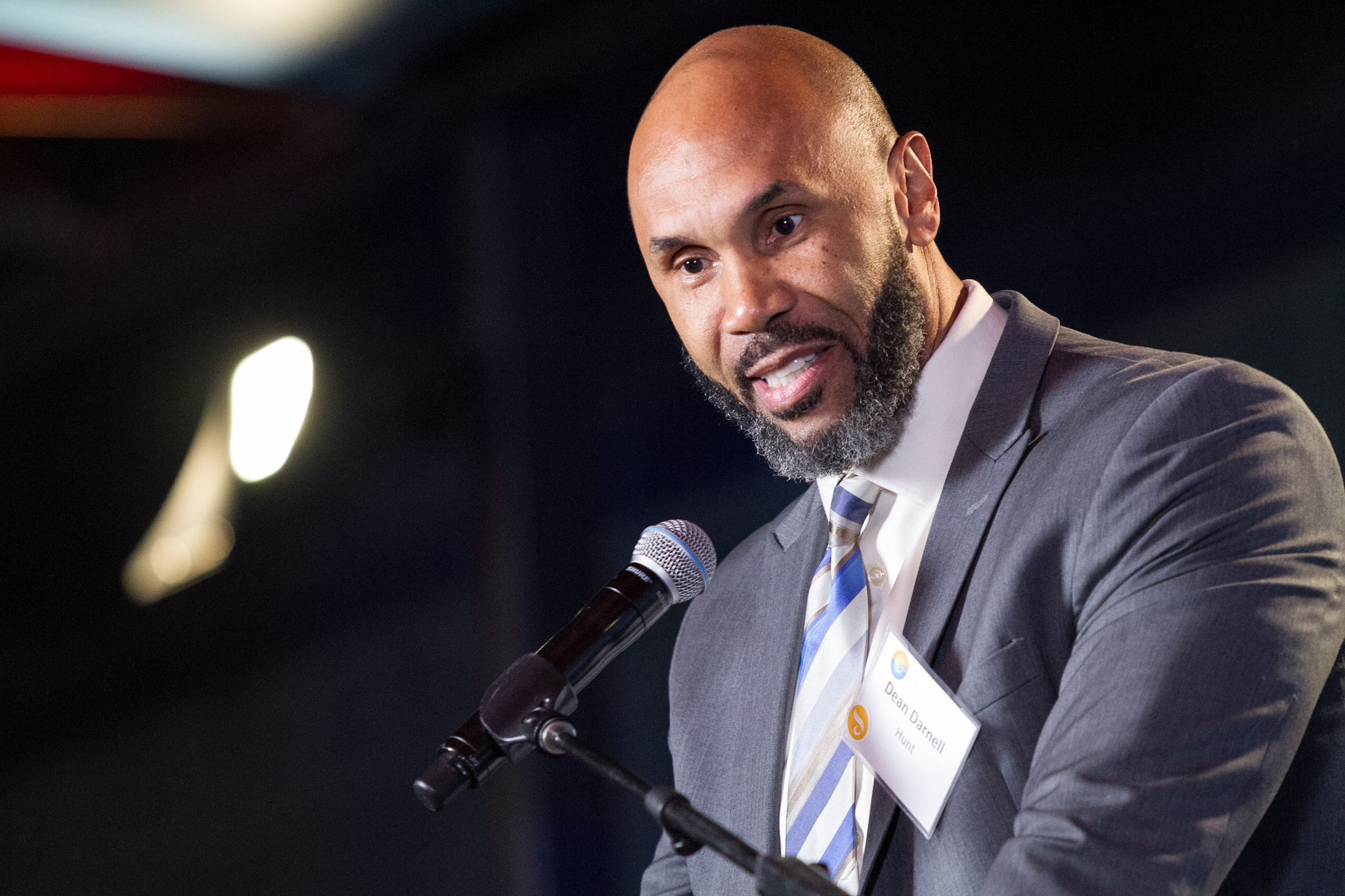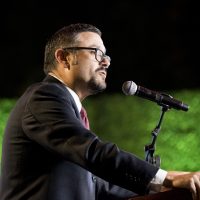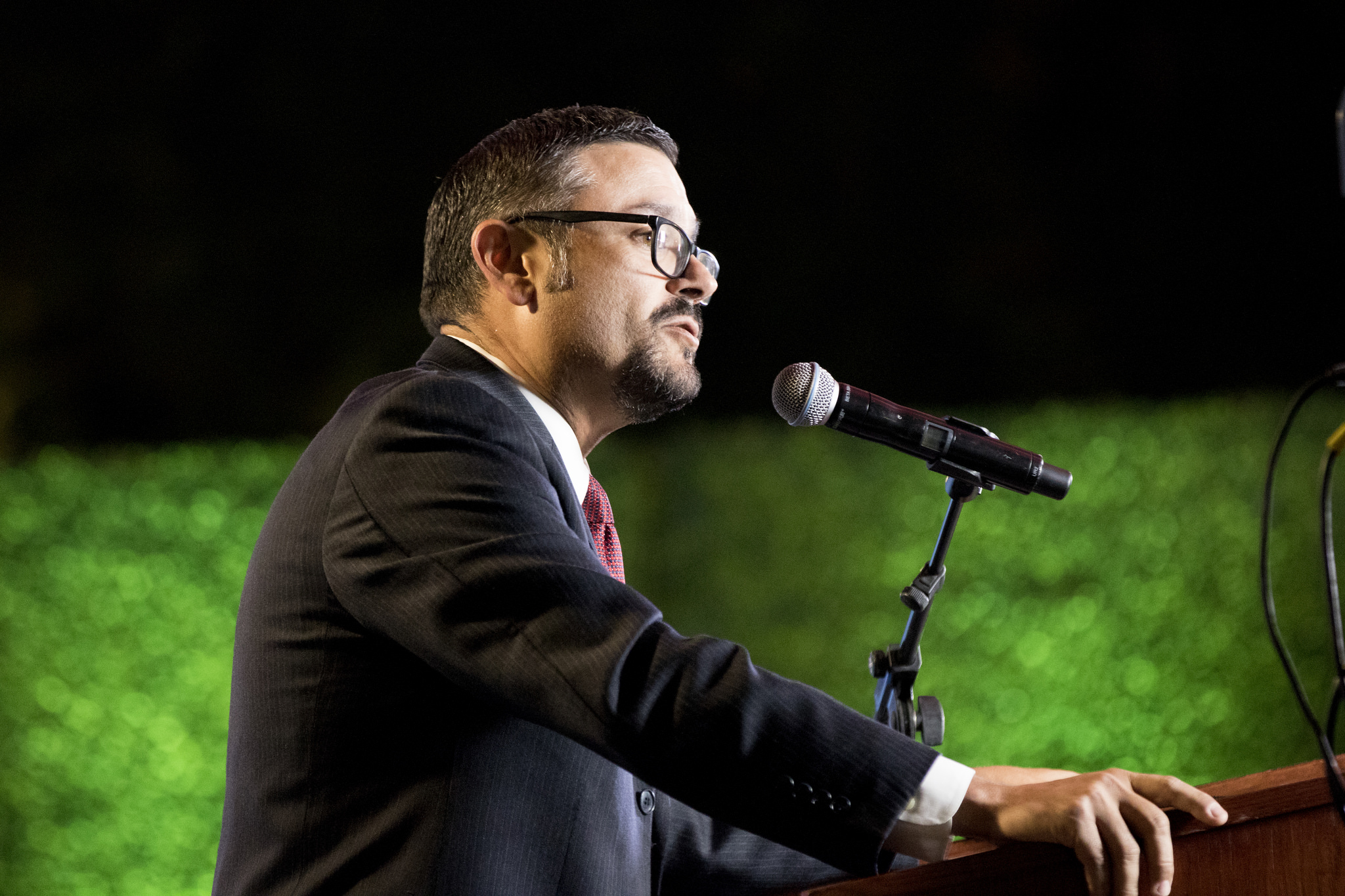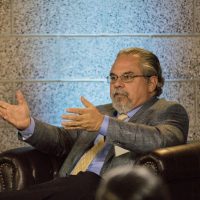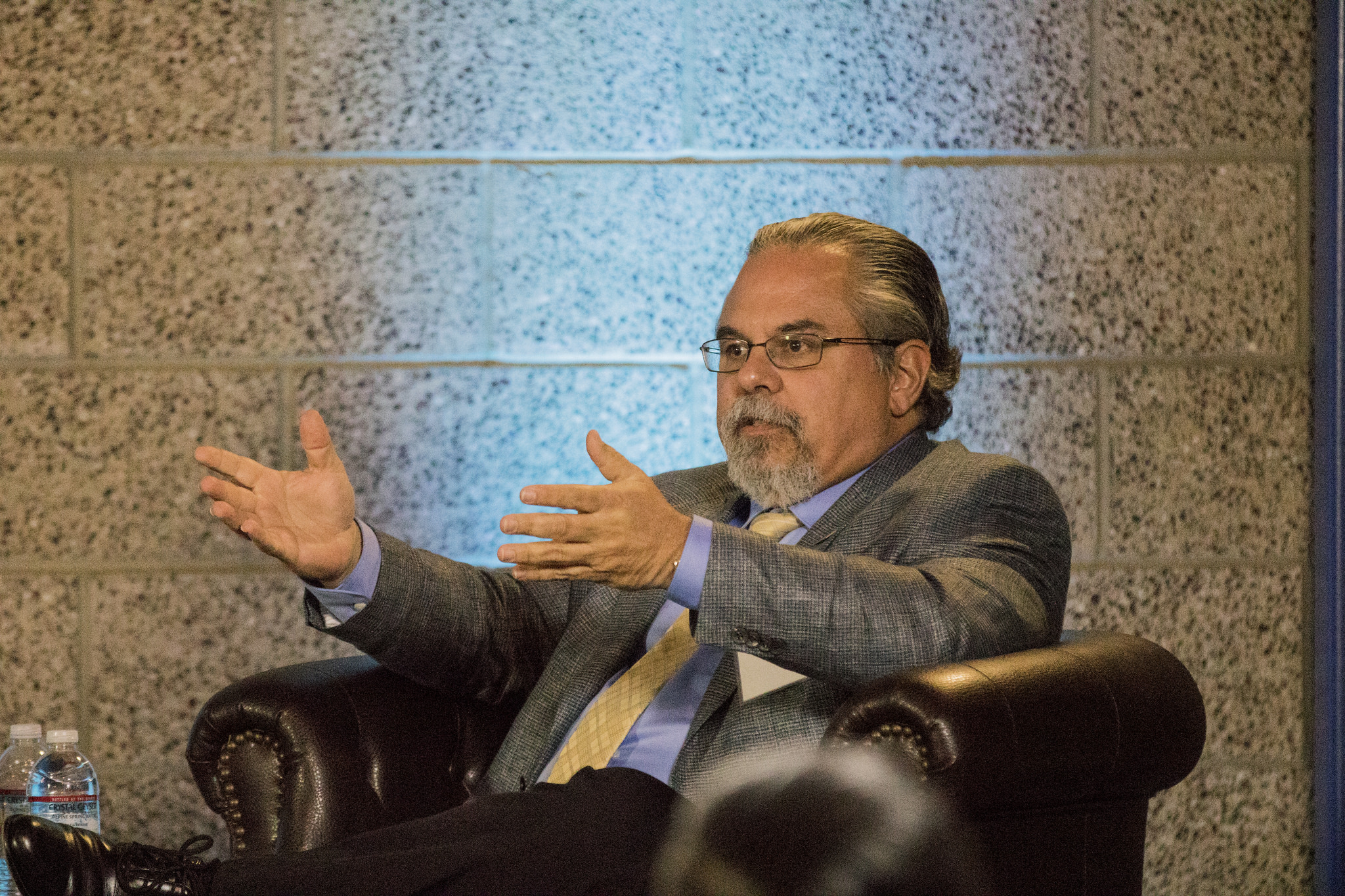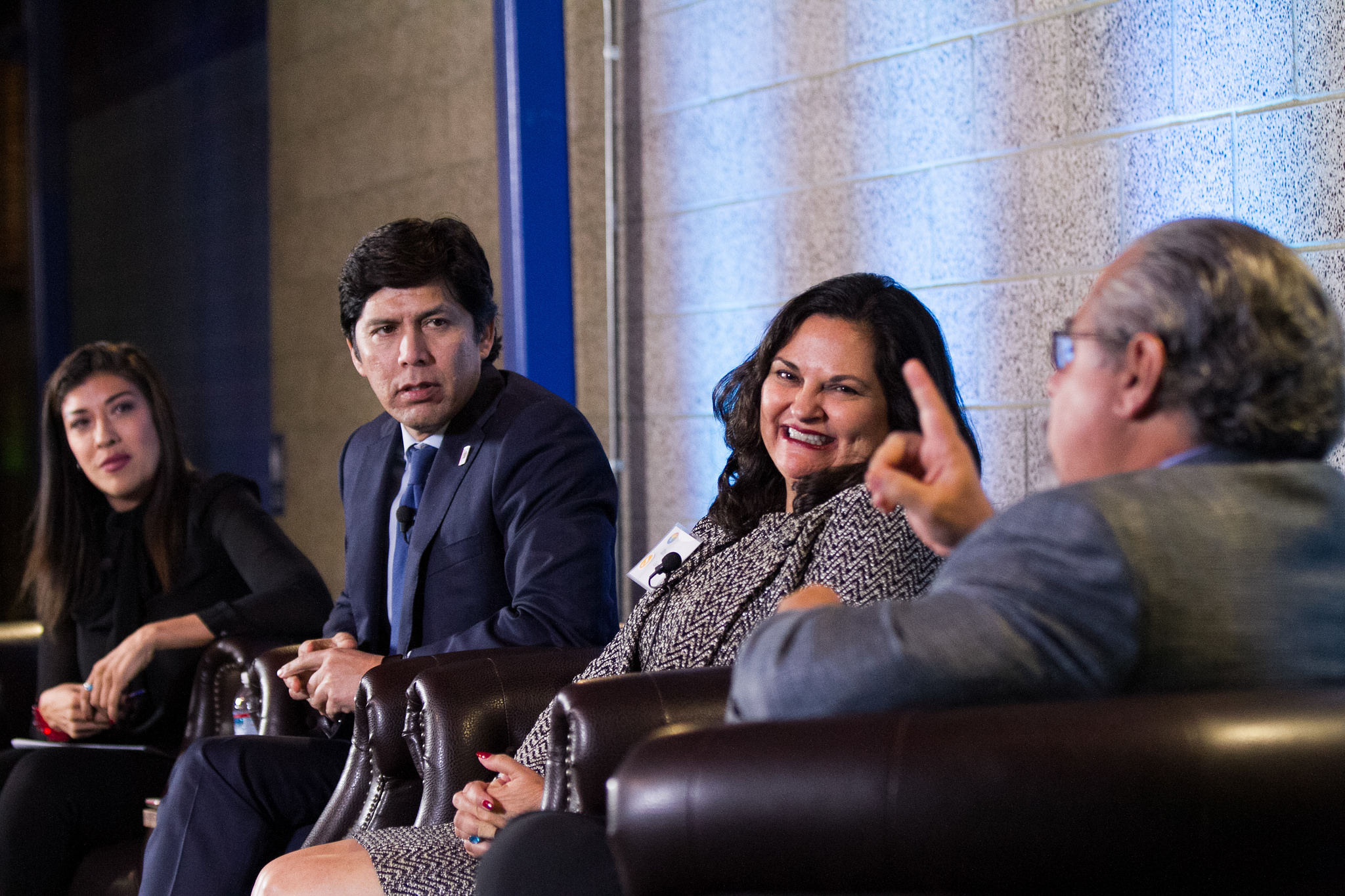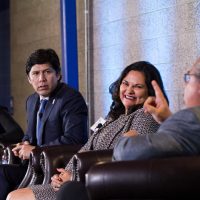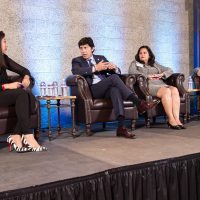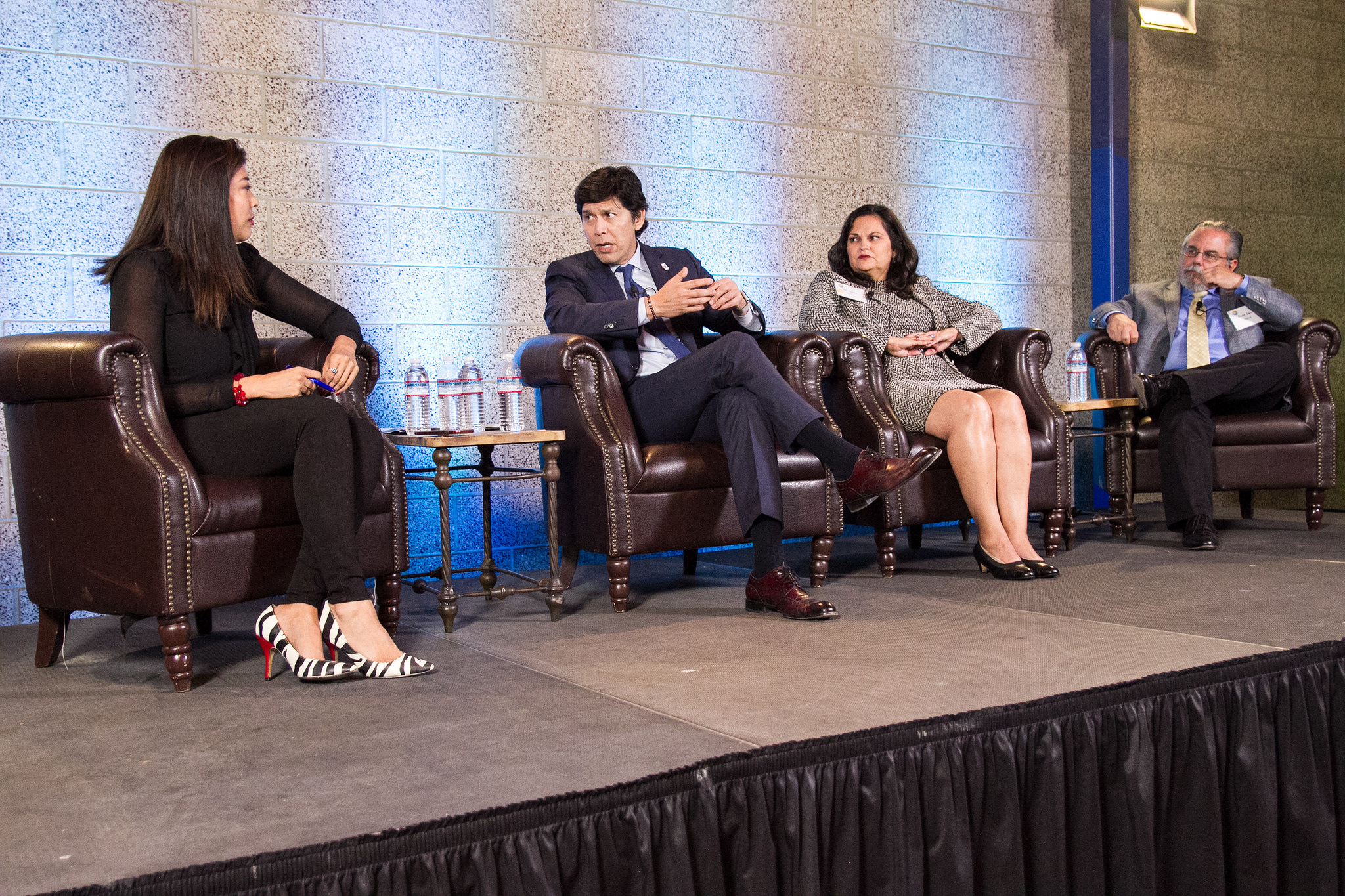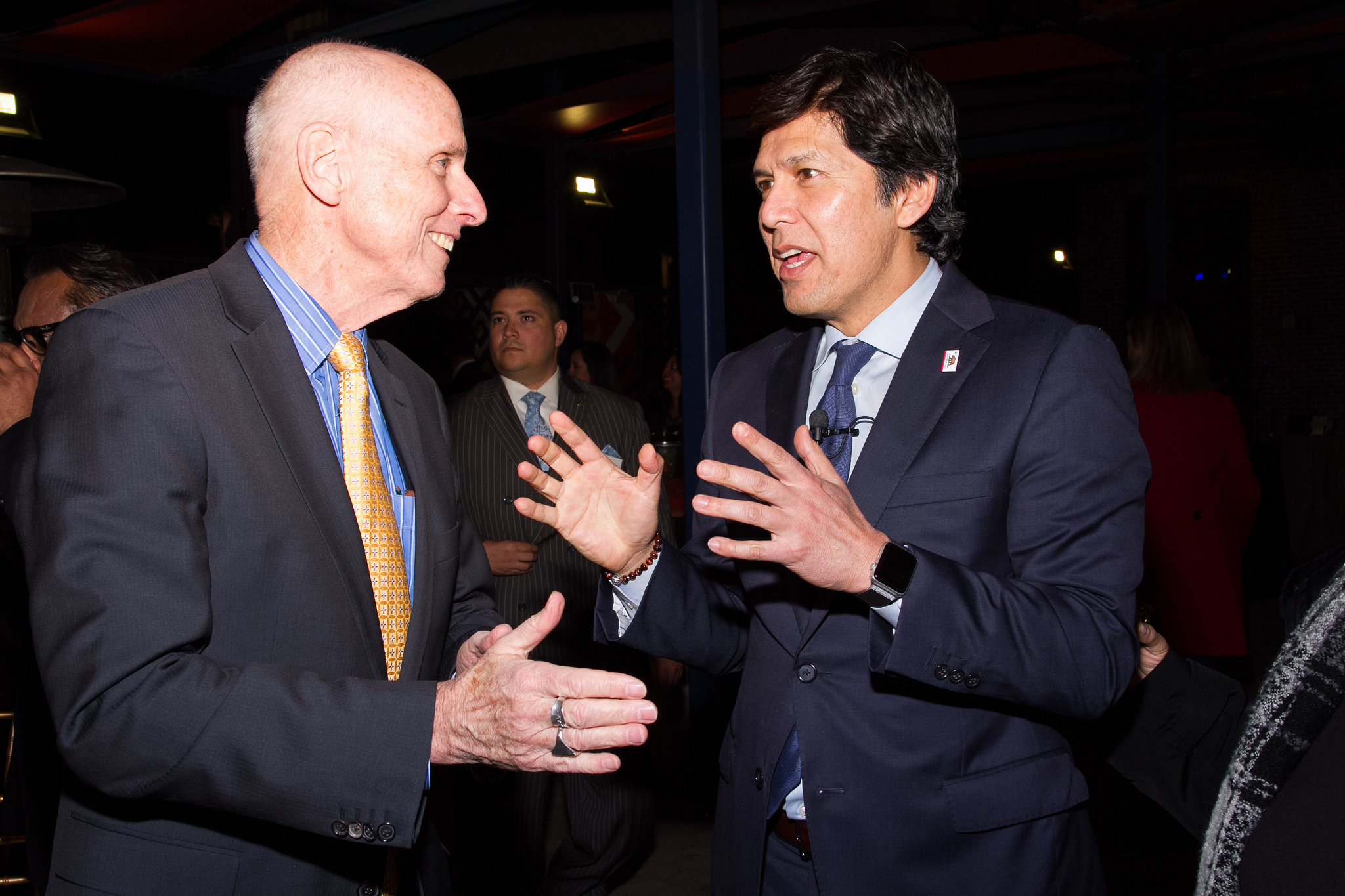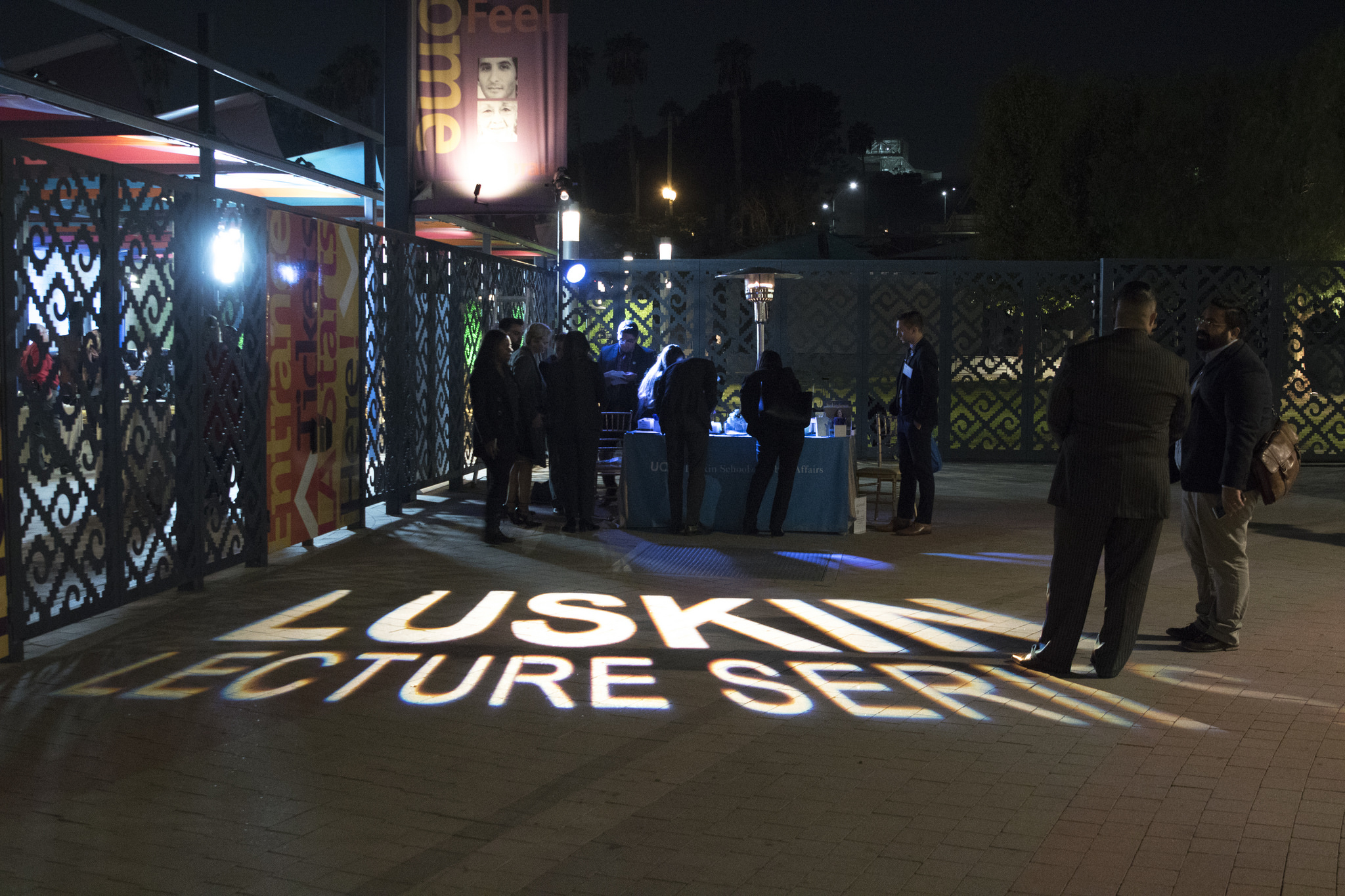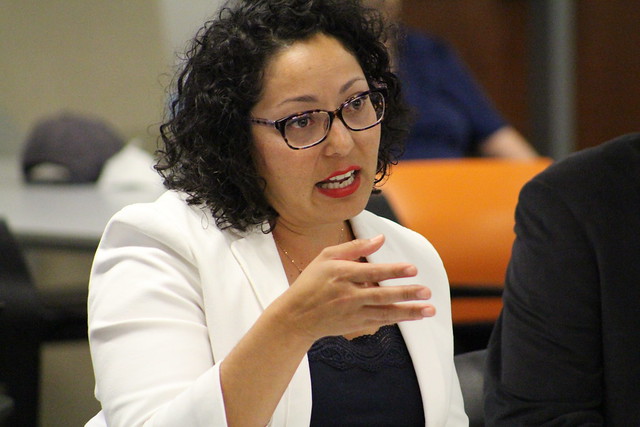Posts
From UCLA Advocacy: U.S. Rep Barragán Looks to Lead by Example
/0 Comments/in Luskin's Latest Blog Gary Segura /by Les Dunseith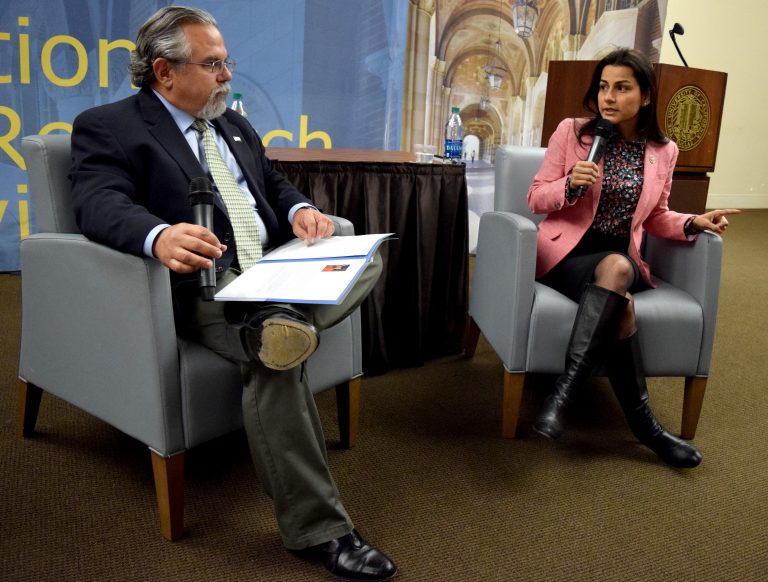
Recently, UCLA Luskin School of Public Affairs Dean Gary Segura moderated a discussion with U.S. Rep. Nanette Barragán, who was a public policy minor during her time at UCLA. “You’ve gone onto a pretty distinguished career already, even though you are just starting out in Congress,” he noted. The event at UCLA’s James West Alumni Center was hosted by UCLA Government and Community Relations and the UCLA Latino Alumni Association.
Launch of New UCLA Luskin Initiative Is True to Its Mission Event celebrating the creation of the Latino Policy and Politics Initiative brings UCLA community together with policymakers to share research and exchange information
/1 Comment/in Alumni, Diversity, Environment, For Faculty, For Policymakers, For Students, Global Public Affairs, Public Policy, Public Policy News, School of Public Affairs, Social Welfare, Social Welfare News, Sustainable Energy, Transportation, Urban Planning Gary Segura /by Les DunseithBy Les Dunseith
The newest research center at UCLA Luskin aims to bring together scholars and policymakers to share information so that political leaders can make informed decisions on issues of interest to Latinos, and its Dec. 6, 2017, kickoff event exemplified that goal.
Students, faculty and administrative leaders from the UCLA Luskin School of Public Affairs and throughout UCLA were among a crowd of about 175 people that also included elected officials, community activists, business leaders and other stakeholders who gathered in downtown Los Angeles to celebrate the launch of the Latino Policy and Politics Initiative (LPPI).
Attendees had an opportunity to hear keynote speaker Kevin de León, current president pro tem of the California Senate and a candidate for the U.S. Senate, talk about recent legislation on issues related to such diverse topics as labor, good government, the environment and education. He was then joined by a panel of experts in a spirited discussion of the current national political climate and major issues that directly impact Californians, particularly Latinos and other communities of color.
“In the great state of California, we celebrate our diversity,” de León told the crowd. “We don’t ban it, we don’t wall it off, and we sure as hell don’t deport it.”
In his speech, de León talked about the state’s efforts to deal with climate change, to improve education and to provide a safe haven for all residents. For example, Senate Bill 54, the California Values Act, which de León championed, creates a safe zone at “our schools, our hospitals, our churches, courthouses and other sensitive locations so our undocumented immigrant communities can live their lives and conduct their businesses without fear.”
De León declared, “If this president wants to wage a campaign of fear against innocent families, he can count us out. Because the state of California won’t lift a single finger or spend a single dime to become a cog in the Trump deportation machine.”
One of the goals of LPPI, which received its startup funding from UCLA Luskin and the Division of Social Sciences, is to provide better access to information — real data, not alternative truths — to help leaders nationwide resist attacks on immigrants and also help them to craft new policies on other issues vital to Latinos.
“It is impossible to understand America today without understanding the Latino community and the power that it wields. And this institute is going to do that,” Scott Waugh, UCLA executive vice chancellor and provost, told the crowd.
“It’s going to harness all of the intellectual capacity that UCLA has — it’s going to be truly interdisciplinary,” Waugh explained. The co-founders of LPPI — Professor of Political Science and Chicana/o Studies Matt Barreto, UCLA Luskin Dean Gary Segura and LPPI Director Sonja Diaz MPP ’10 — “have a vision that reaches not just inside the School of Public Affairs but reaches out across the campus in areas like health, education, science, the arts — wherever Latinos have made a difference and continue to affect change in a profound way.”
Darnell Hunt, dean of the Division of Social Sciences at UCLA, noted in his remarks that the founding of LPPI comes at a particularly opportune time in American politics. “It goes without saying that we live in challenging times — challenging political times — and the Latino Policy and Politics Initiative will help us make sense of this contemporary setting with an eye toward transformative solutions.”
Barreto, who served as master of ceremonies for the night, spoke about the scope of LPPI’s vision. “We’re not only going to work on immigration reform — we know that immigration reform affects our community and we will work on that — but we are dedicated to work on every policy issue.”
He added, “Whether it has to do with climate change or clean energy, transportation, housing, homelessness, criminal justice or education, we are going to work on that. And we have experts at UCLA who will join us.”
Many of the 20 scholars from across the UCLA campus who are part of LPPI’s faculty advisory council attended the launch event, which began with a networking reception at La Plaza de Cultura Y Artes near Olvera Street, the founding site of Los Angeles itself. As musicians from La Chamba Cumbia Chicha performed, attendees had an opportunity to meet and exchange ideas with the featured speakers and various former and current elected officials in attendance, such as Gil Cedillo, the former state senator and current Los Angeles city councilman. Also in attendance were former California assemblyman and senator Richard Polanco and Amanda Rentería, the former national political director for Hillary Clinton’s campaign and now a staff member in the executive office of California Attorney General Xavier Becerra.
The event wrapped up with a panel discussion and Q&A moderated by Lucy Flores, a former assemblywoman in Nevada who now serves as vice president for public affairs for mitú, a multimedia enterprise that targets young Latinos. Panelists said that bolstering the number of Latino elected officials has been a vital step in bringing about positive change.
“In the end, votes are what count,” Segura said, noting that Latino’s political influence has not kept up with its rapid population growth. “In order for governments to enact policies that benefit Latinos, it is going to be required that Latinos be a significant share of elected officials.”
Panelist Laura E. Gómez, professor of law at UCLA and former interim dean of the Division of Social Sciences, expanded on that idea in light of a recent wave of disclosures related to sexual misconduct by men in positions of power.
“I think it’s really important … for us to realize that Latinos are a diverse community. We are not just men; we are also women. We are not just straight people; we are also gay and transgender people. And those are important numbers going forward,” she said.
Flores summed it up, “Demographics is not destiny.”
The fact that California often seems to be an outlier in the current national political climate was a recurring topic of the night, with several speakers praising Californians’ resistance to the policies of the current U.S. president. Can the state also serve as a model of progress?
“Despite all of the discord and disunity, California is standing tall for our values,” de León said during his speech. “From education to the environment, from high wages to health care, to human rights, to civil rights, to women’s rights, to immigrant rights, California is proof positive that progressive values put into action in fact improve the human condition regardless of who you are or where you come from.”
De León said California is a leader in innovation — “home to Hollywood and Silicon Valley and the best public university system in the world, the University of California. And we are on the cusp of surpassing the United Kingdom for the fifth largest economy on planet Earth.”
The state is thriving, he said, by doing exactly the opposite of what Donald J. Trump says. “We succeed because we are dreamers, not dividers. We succeed because we double down on lifting people up, not putting them down. We are not going to allow one election to erase generations of progress.”
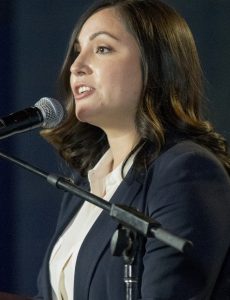
Photo by Les Dunseith
“I want to ask for your partnership, because this is what we need to do — we need to train a new leadership pipeline that is diverse but also represents us substantively,” LPPI Founding Director Sonja Diaz told the audience.
Saying that UCLA is “arguably the finest public institution in the nation, if not the entire world,” De León spoke enthusiastically of the promise that LPPI represents for elected officials such as himself. “We need the empirical evidence, and it’s about time we have this institution established at UCLA.”
Later, when speaking about climate change during the panel discussion, he expanded on the idea that knowledge equals power.
“California has the ability — if we have access to this type of information, this data — to export our policies to other states, even to red states that may not believe in climate change per se,” de León said. “We are showing that, whether you believe in climate change or not, you can actually grow an economy by delinking and decoupling carbon from GDP.”
Access to data is important, but it takes real leadership to turn information into action. “You can have all the academics in the world, all the data, but it doesn’t make a difference if it just sits in a book on a shelf,” de León said. “You have to take that data and move it with political power to actually implement it, execute it, to improve the human condition.”
Segura said it is his goal — and the mission of LPPI — to unite scholars and policymakers for mutual benefit, helping academics turn research into actionable policy.
“Facts do matter. Facts may not be a good way to sell people who don’t want to hear them, but lots of well-meaning elected officials want information,” Segura said. “One of the jobs of the institute is going to be to take the data out of those dusty books and put them in the hands of policymakers in a useful time frame so that policymakers can respond.”
The Latino Policy & Politics Initiative is a comprehensive think tank around political, social and economic issues faced by California’s plurality population of Latinos and other people of color. Anyone interested in providing financial support may do so through the UCLA giving page for LPPI.
Additional photos from the event may be viewed in an album on the UCLA Luskin feed on Flickr. Watch the video of our speakers and panelists.
Inside Look at State Politics
/0 Comments/in Luskin's Latest Blog Abel Valenzuela, Gary Segura, J.R. DeShazo /by Les Dunseith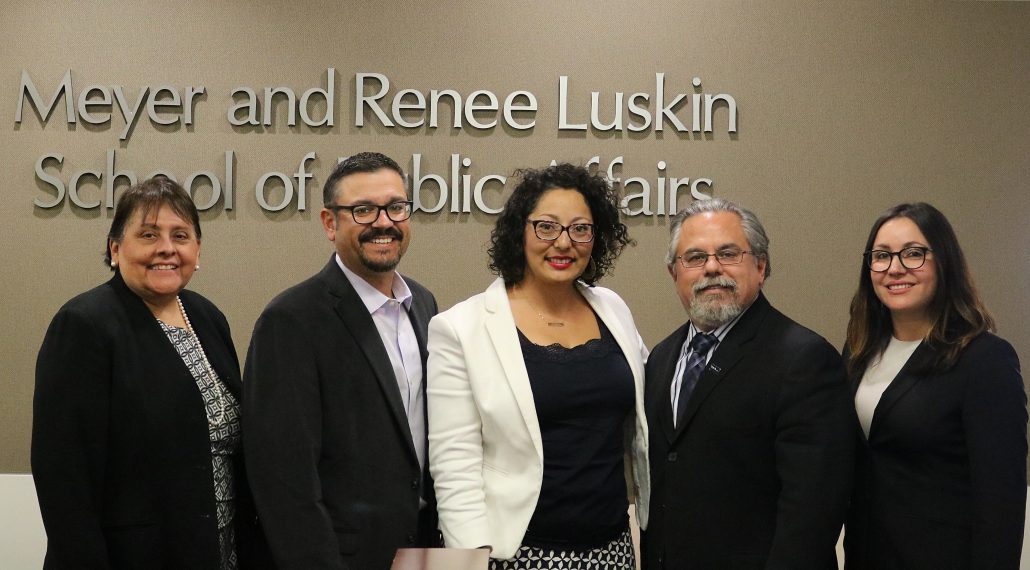
Cristina Garcia’s day at UCLA began with a meeting with Ramona Cortés Garza, executive director of UCLA State Relations, and LPPI’s leadership — Political Science and Chicana/o Studies Professor Matt A. Barreto, Luskin Dean Gary M. Segura and LPPI Director Sonja Diaz. They discussed how to leverage research to inform evidence-based policy solutions that are tailored to meet the needs of diverse Californians. Photo by Bryce Carrington
Cristina Garcia of the California State Assembly spoke about her efforts to make government more transparent during an Oct. 16, 2017, gathering at UCLA hosted by the Latino Policy and Politics Initiative. Garcia talked about the grassroots battle against political corruption in the 58th Assembly District in Southeast Los Angeles that eventually led her to seek office. “I’m an idealist at heart, and I do believe that we can have a democracy that works for us all.” Garcia talked about her three policy pillars: government transparency, women’s issues and environmental justice. She believes in standing up for the majority-Latino district she was elected to represent, but she envisions California as a place where every group of voters has equal input and access to the political system. She advocates for a more diverse and representative political system in which all Californians have an equal seat at the table. “For me, when I talk about where I want to see my society, we can’t shy away from race,” she said during a Q&A with students, staff and faculty from UCLA Luskin, the Division of Social Science, Grad Division, UCLA’s Early Academic Outreach Program, the Institute of Environmental Studies, and UCLA’s Government and Community Relations. “We can’t shy away from things that are real systemic barriers.” Although she faces hurdles when pushing many issues of importance to her constituents, she said that time and changing demographics are on her side. “Latino power is growing. We have had some losses and some steps back, but sooner or later we are going to be a majority,” Garcia said of California’s evolving population. “And we are also going to be a majority in those demographics in the State Legislature.”
Hover over the image below to access a Flickr gallery of photos.
Dean’s Message on DACA Decision 'You are not alone in this,' Segura writes in support of any undocumented Luskin students
/0 Comments/in Alumni, Diversity, For Policymakers, For Students, Public Policy, School of Public Affairs Gary Segura /by adminFriends, Colleagues, Alumni and Students:
I am heartsick to hear the announcement from the Trump administration that DACA will be ending unless there is some congressional action in the coming months. This decision flies in the face of good policy, the best interests of the United States, our moral obligations to one another, and simple human decency. In the long run, my sincere hope and expectation is that this decision will not stand, that our society will move forward toward a more reasonable and just outcome for these young people and, indeed, all members of our society whose status is an obstacle to a fuller and more complete participation in our economy and institutions. In the interim, we face a period of uncertainty, and for this I am deeply sorry.
For now, I want to make several things perfectly clear. First, to every undocumented Luskin student, you have my support. You are not alone in this, and I will continue my work (within the University and elsewhere) to push back on this odious turn in federal policy. Second, every Luskin student has my personal commitment to protect your privacy and educational records, consistent with U.S. law and the principles outlined by the UC-system in response to these events. Third, all of us have a special duty, in these circumstances, to redouble our efforts toward helping families and communities cope with the challenges presented by these and other events. And finally, know that your work and training are not in vain. Rather, it is in these moments that the tools of social science and a commitment to human well-being are in greatest demand.
I hope, in the near future, I will be able to address you with better news on this critical issue. Until then, to the ‘Dreamers’ among us — I will continue to admire your strength, your resilience, and your immense capacity to make change in this society.
In hopeful determination,

Gary M. Segura
Professor and Dean
Dean Gary Segura Named Vice President of American Political Science Association APSA is the largest association of political scientists, with more than 12,000 members. It promotes scholarly research and teaching in politics and government.
/0 Comments/in For Faculty, For Policymakers, Public Policy News, School of Public Affairs Gary Segura /by Stan PaulBy Stan Paul
Gary Segura, dean of the UCLA Luskin School of Public Affairs, has been named vice president of the American Political Science Association (APSA), the leading professional organization for the study of political science.
Segura assumed the one-year leadership post at the annual meeting of APSA held Aug. 31–Sept. 3 in San Francisco. Previously, he served on the Executive Council of APSA – the organization’s governing body – and also was past president of the Midwest Political Science Association and Western Political Science Association.
“It has been my privilege to serve on the Executive Council in the past, and I have great affection for the association and the work it does,” said Segura, who also holds academic appointments in public policy and Chicana/o studies at UCLA.
ASPA, founded in 1903, has more than 12,000 members representing more than 80 countries and promotes scholarly research and teaching in politics and government. The organization is the largest association of political scientists and publishes a number of peer-reviewed political science journals, including American Political Science Review.
“I am honored to have been elected vice president and am looking forward to helping guide the association in the coming year,” said Segura, who joined the Luskin School as dean in January 2017.
Prior to coming to Luskin, Segura was the Morris M. Doyle Centennial Professor of Public Policy, professor of political science, and professor and former chair of Chicana/o–Latina/o studies at Stanford University, where he also served as director of the Center for American Democracy and director of the Institute on the Politics of Inequality, Race and Ethnicity.
Amplifying the Voice of Latinos on Policy Issues Latino Policy & Politics Initiative at UCLA Luskin School will fill a critical research gap and provide a think tank around political, social and economic issues
/0 Comments/in Alumni, Diversity, For Faculty, For Policymakers, For Students, Public Policy, Public Policy News, School of Public Affairs Gary Segura /by Les DunseithBy Les Dunseith
A new initiative underway at the Luskin School of Public Affairs will take advantage of the immense research expertise at UCLA to fill a critical gap in research and policy analysis related to issues that impact Latinos and other communities of color in California and across the country.
The Latino Policy & Politics Initiative (LPPI) will be “a comprehensive think tank around political, social and economic issues faced by California’s plurality population,” said UCLA Luskin Dean Gary Segura about the new effort, which also received startup funding from the Division of Social Sciences. Matt Barreto, professor of political science and Chicana/o Studies, co-founded the project with Segura in February 2017.
Founding Director Sonja Diaz came aboard in March and has spearheaded meetings with scholars, community organizations, public officials, staff members from governmental agencies, and potential funding partners to formalize the initiative and secure its place among the various research centers at UCLA.
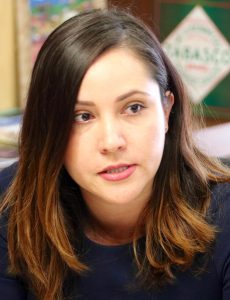
“People on this campus are supportive and willing to partner.”
—Sonja Diaz
“One of the things that I have personally been so impressed with is that people on this campus are supportive and willing to partner,” said Diaz, who earned a Master of Public Policy degree at UCLA Luskin in 2010 before going on to receive her law degree from UC Berkeley. “They see the value of supporting LPPI as a meeting place, as an organization and as a foundation to build upon.”
Scholars from across campus have already come aboard, including professors from schools and departments such as Medicine, Business, Health Policy and Management, History and Law.
“We stand here on the shoulders of individual researchers, scholars, students and their centers to actually start having a convergence and a meeting place,” Diaz said about the role of LPPI in uniting Latino-focused research efforts so that studies can be found and shared more easily among interested parties. “We have more than 16 people already in place to produce rapid-response and evidence-tested research on domestic policy issue areas.”
Segura, himself a professor of public policy and Chicana/o studies, said that the University of California — particularly UCLA — is an ideal home for the enterprise. LPPI will develop new research, as well as assist existing faculty research projects and provide direct support for the community, centered around policy issues of vital importance to Latinos.
“The city of Los Angeles is the second-largest Spanish speaking city on the planet — after Mexico City, and significantly ahead of Buenos Aires and Madrid,” Segura explained. “If you are going to study what is happening to Latinos in the United States, you begin in Los Angeles, and your next stop is California.”
Barreto noted that Latinos have been the largest minority group in the U.S. since 2001, and the Latino percentage of the population continues to grow, particularly in California. “Yet, there is a significant gap between the diversity of our state and the institutional representation of Latinos in Sacramento, as well as in the UC system,” he said. “Through this initiative, we hope to increase policy-relevant research on Latinos in California and the country as a whole.”
Basing LPPI at UCLA not only makes sense geographically, it makes sense organizationally, Segura said.
“UCLA has a very strong Department of Chicano/a Studies. It has a very strong Chicano Studies Research Center. And the Luskin School of Public Affairs is UCLA’s — and I would argue the University of California’s — best voice on questions of human service and human need,” Segura said. “The concentration of Latino academics here makes UCLA the right place for LPPI. It’s where it should exist.”
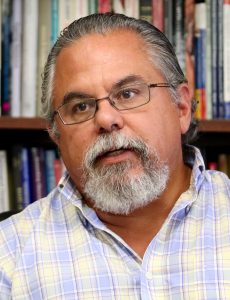
“The concentration of Latino academics here makes UCLA the right place for LPPI.”
—Gary Segura
Although LPPI is still in the organizational phase of its evolution, Diaz noted that its leaders have “already connected with, met with, and partnered with more than 50 community-based organizations, both nationally and at the state level.”
Segura, Barreto and Diaz continue to meet with potential funding partners, including a host of state and federal foundations, and recently completed a trip to Sacramento to engage with members of the California Legislature. The visit served a dual purpose, simultaneously letting elected officials know about LPPI and giving the leadership team an opportunity to ascertain the needs of elected officials in terms of the policymaking demands of the populations that they represent.
“One of the things that we learned is that state government does no demographic research as a matter of form,” Diaz said. “It means that policy is not always best-tailored to the needs of communities of color. We know there is an opportunity there — a need for this type of research.”
To fill that need, LPPI will be launching new research projects to be completed by internal staff members, often working with postdoctoral candidates and graduate assistants. Those projects will afford students an opportunity to get hands-on training and will forge partnerships that Diaz sees continuing beyond graduation as former UCLA students take their places in government life.
“One of the things that is unique about LPPI is that it’s action-oriented,” she explained. “It’s not enough to just produce the research and produce the evidence, but we will actually put it into the hands of people who can go ahead and integrate it into their own proposals.”
The ability to respond quickly to issues of concern among Latinos is a vital aspect of the new initiative. “It’s no secret that a majority of Latinos felt disrespected and under attack by Donald Trump during the presidential campaign,” Barreto said. “It is more important now than ever before to have an objective, research-based approach to policy and politics, to understand the Latino experience in this country, and to make sure that policymakers at all levels of government — from president of the school board to president of the United States — understand that Latinos contribute equally to our communities and expect to have equal input into, and equal outputs, from the political system.”
Diaz sees LPPI becoming a go-to source of information on Latino policy issues at City Hall, in Sacramento and for people nationwide. Segura concurs, noting that he has launched an effort to hire additional faculty members at UCLA Luskin who will add new areas of expertise to the cadre of faculty members across the campus who are already actively pursuing important policy or social issue research.
Segura’s ultimate goal for the Latino Policy & Politics Initiative?
“We will be doing something in the world to improve the lives of the people that we study,” he said, “which, really, is why we do it.”

Contact
UCLA Luskin School of Public Affairs
3250 Public Affairs Building - Box 951656
Los Angeles, CA 90095-1656
